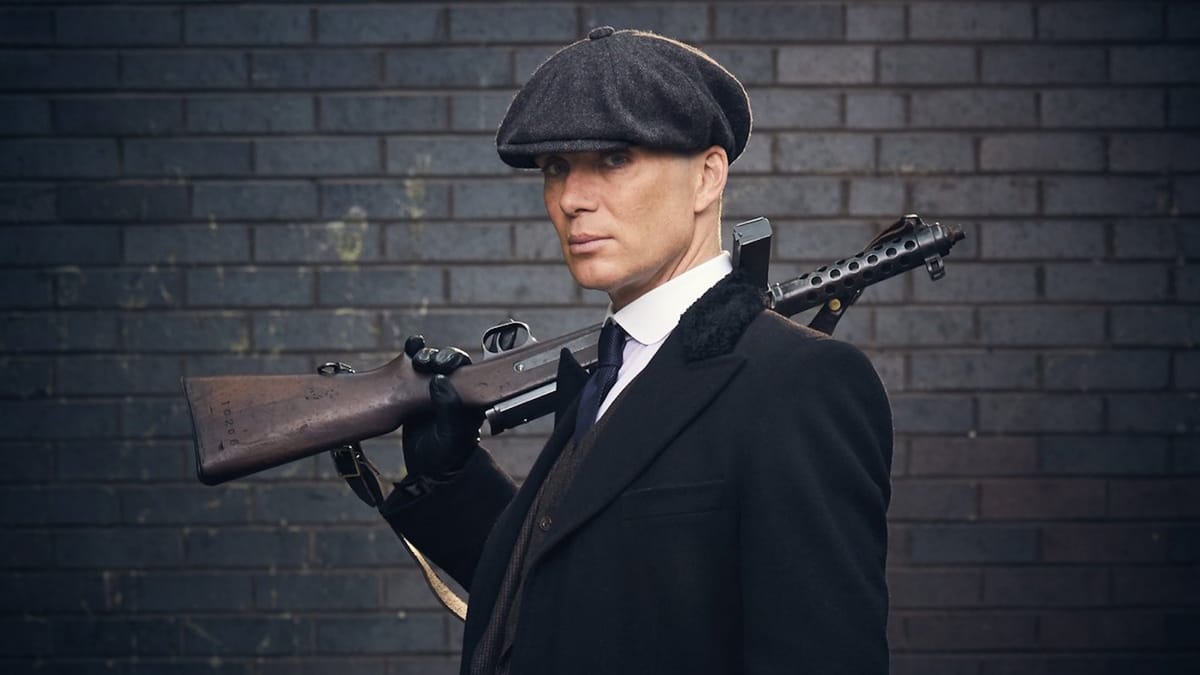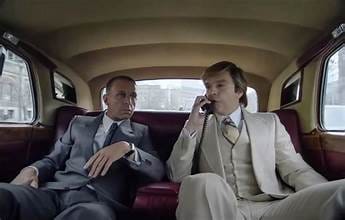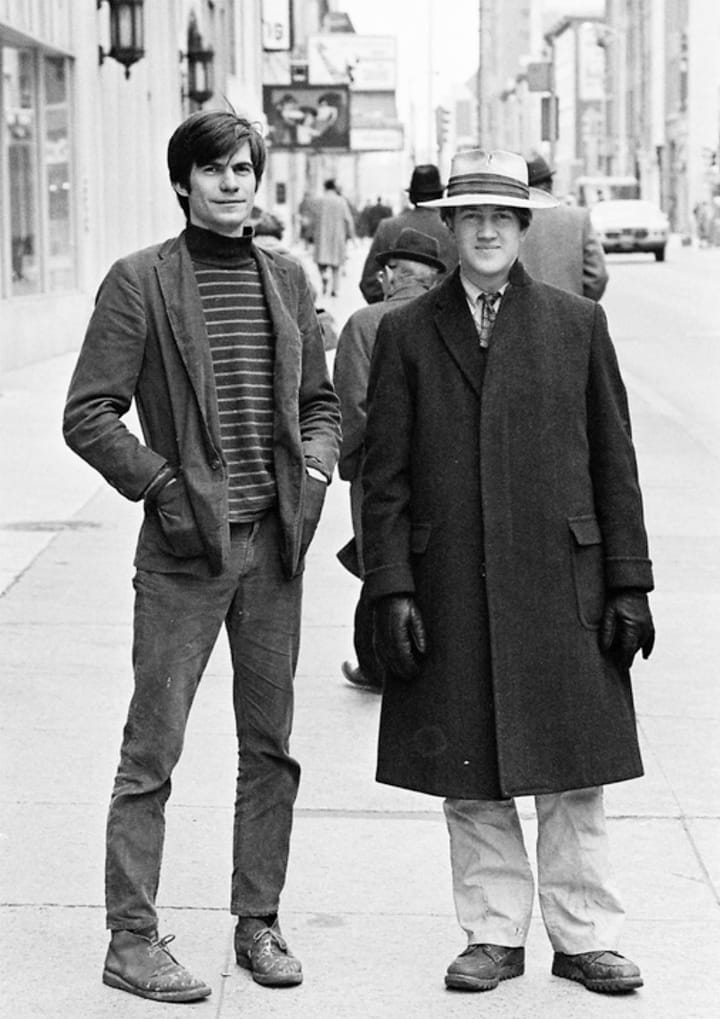By Order of the Peaky F*cking Blinders

Word comes from creator Steven Knight that Cillian Murphy will return to star in a film version
“It’s not a good idea to look at Tommy Shelby the wrong way.” These words of warning are intoned almost reluctantly by Cillian Murphy’s boss-man gangster about himself early in the run of the BBC’s six-season success “Peaky Blinders”. It’s a non-answer as to why he committed a killing; to avoid spoilers, let’s just say the episode in question involves a horse, and Tommy’s relation to horses involves a large dose of post-traumatic stress. So, there will be blood. The anguish he feels might be compared to Tony Soprano’s disturbing fugue states when confronted with the haywire ducks who visit both his imagination and the pool of his New Jersey manse.
The revelation this week by “Peaky” creator and show runner Steven Knight that Murphy has signed on for a film version of the BBC saga added great emphasis to the heft of the drama’s ever-broadening cult. The series holds traction as a Netflix favorite after all but sneaking onto the streamer in 2014, then rising gradually. In debuting the series’ final season in June 2022, one episode racked up 904 millions minutes watched in one week—second only to “Stranger Things”. Similarly, it grew from its BBC Two start in 2013 to close out its run on BBC One with an exceptional U.K. audience approaching five million viewers.
Murphy, of course, most recently landed a career landmark with his Best Actor Oscar and a staggering worldwide audience for his portrayal of atomic scientist Robert Oppenheimer. What Murphy expertly showed us was the sad triumph of a haunted man who achieved his scientific mission only to face the idea that he may have ushered in world annihilation.
Leaving for another time any debates as to whether the film’s view from space of firestorms licking planet Earth in fact addresses the consequences for Hiroshima, Nagasaki and mankind, Murphy’s performance is clearly epochal—all the more so because it’s created with the most disciplined of actor’s brush strokes.
His portrayal of the lethal Shelby is similarly nuanced, with Tommy being a study in restraint—except when a practical necessity meets his onboard demons and a very personal violence breaks out. In a series that is executed with a general avoidance of gangster-saga tropes, a slo-mo fracas early on exhibits, as did certain scenes in “The Sopranos,” the brutality of the family business. (Knight, whose parents raised him in a modernized version of the same geographical and street-savvy world his series depicts, was innocent of seeing such prototypes as “The Wire” and “Boardwalk Empire”—though the latter focused on much the same span of decades as “Peaky” does.)
If Knight is not on the record as to his view of “The Sopranos,” to this fan it seems justifiable that “Peaky” gets discussed in the same breath as any of the small screen’s most-celebrated shows. From the moment we meet Tommy guiding a shiny-coated black racehorse through the muddy streets of Birmingham, England’s Small Heath district in 1919, we immerse in a district that feels authentically period and grim. In the art direction’s broad palette of mostly smudged browns, any bold color carries significance. By the series’ end, not quite too neatly, he’ll be astride a white mount, presumably about to go forth to challenge the rising Fascist threat of 1930s England and—as Kevin Costner’s Eliot Ness says before bringing hell to bootleggers in “The Untouchables,” to “do some good”.
Closely attending his words in the above warning is Annabelle Wallis’ Grace (these names don’t happen by chance), who is deeply compromised in her interactions with Tommy and through Wallis’ good work becomes her own fascinating study in ambivalence. All of this, in case we forget the blood-soaked plotlines, bears life-and-death repercussions. Soon enough, she too will be kitted out by the costumers in symbolic deep-scarlet finery.
Key co-star Helen McCrory, who played Aunt Polly with studiously banked anger, is sometimes clad in abyssal shades of blue, and is herself dangerous--as when she tells a Shelby associate who wants Tommy to dial things back, “I’m twice the man you are and I can’t hold him.” (McCrory occupies many a artfully knocked-down –.i.e., drab—interior amidst the show’s telling Rembrandt lighting. (A top stage actress who was married to actor Damien Lewis, she succumbed to cancer but finished her character’s arc and was subject of a dedication in her final season’s credits.)
Tommy’s older brother Arthur is even more damaged by the shelling, and killing, they all lived through in World War I battles. (The alternating frenzy and emotional paralysis actor Paul Anderson brings to the role feasibly printed through to recent real-life antics tabloids have snacked on.)
Like the rest of the content-makers, “Peaky” hit a bit of a pause in pandemic times, but “Oppenheimer” director Christopher Nolan has spoken of years ago first seeing, and wishing to deploy, the arresting visage of Irishman Murphy--as he's done several times. Watching Murphy portray Tommy as poised between common sense (from his troubled mother’s side) and “devilment” (via his roaring-boy dad as played by Tommy Flanagan , familiar as the menacing Chibs from “Sons of Anarchy” ) is like watching a steely lock-picker at work. Master of the enigmatic not-quite smile, unafraid of any man (in fact, he’s in fatalistic search of someone who can out-think or out-gun him), Tommy slowly turns from wealth acquisition to a deeply politicized if covert crusade against Oswald Mosley’s Fascist cabal. His oldest friend Freddie risks all for his own politics—and his love for Tommy’s sister Ada—but like the local barkeeps, cops and several intermittent lovers, wonders to him, “Do you even know the word?”
“I have no sympathies of any description,” says Tommy to Grace a one point, but he’s learning about love even as Murphy so resolutely withholds a smile that we—and she—are fascinated to see one almost dawn. Murphy is a master of deft actor’s business, always ready for a few slugs of balming Irish whiskey, neat, and a master of prestidigitation with one of his many well-savored cigarettes. Yet he seems almost denuded without such props in a quiet, pheromone-rich moment with Grace. Soaked from a rainy rendezvous with his horse trainer, dumbstruck and sorrowful as he sits in the family pub (where guns are often drawn) to hear her acapella Irish ballad, he incarnates the reason the series won Best Drama in the 2019 BAFTA awards, and despite no Emmys, a growing American audience.
Murphy’s signing on for a film version—he’s long promised to so so “if there’s a story there”—shows he has no doubt Knight’s writing is up to the challenge. We should feel the same anticipation.





Comments ()